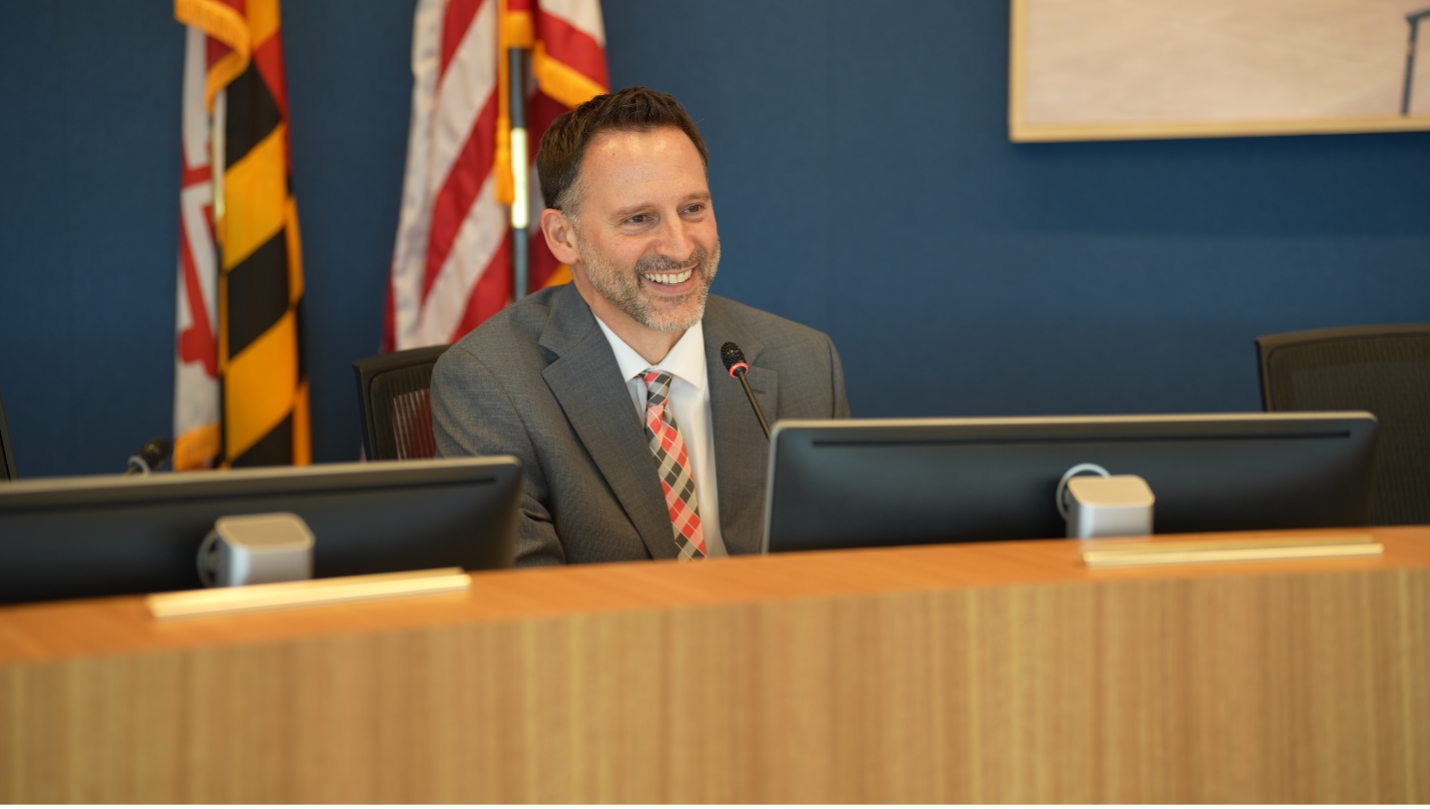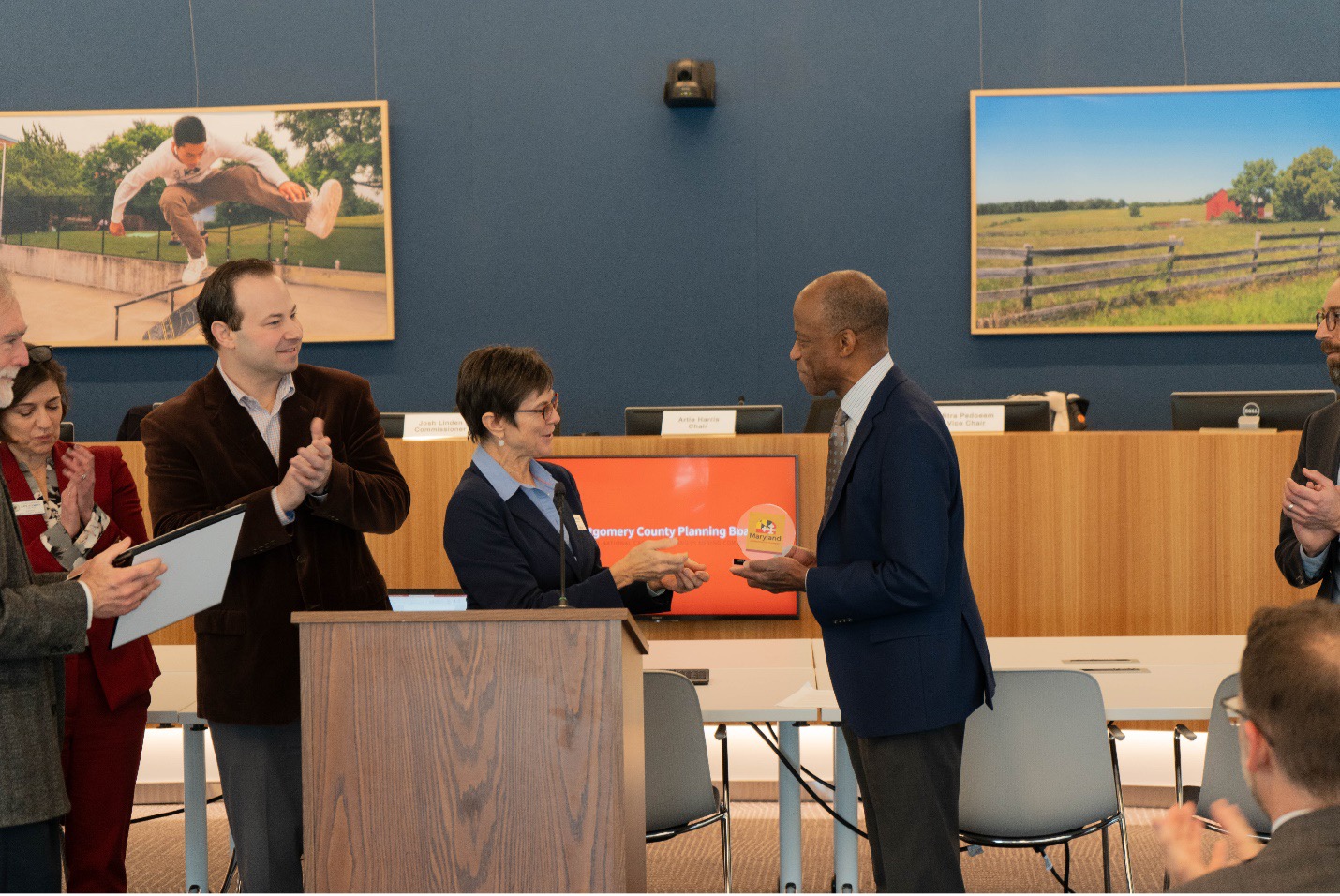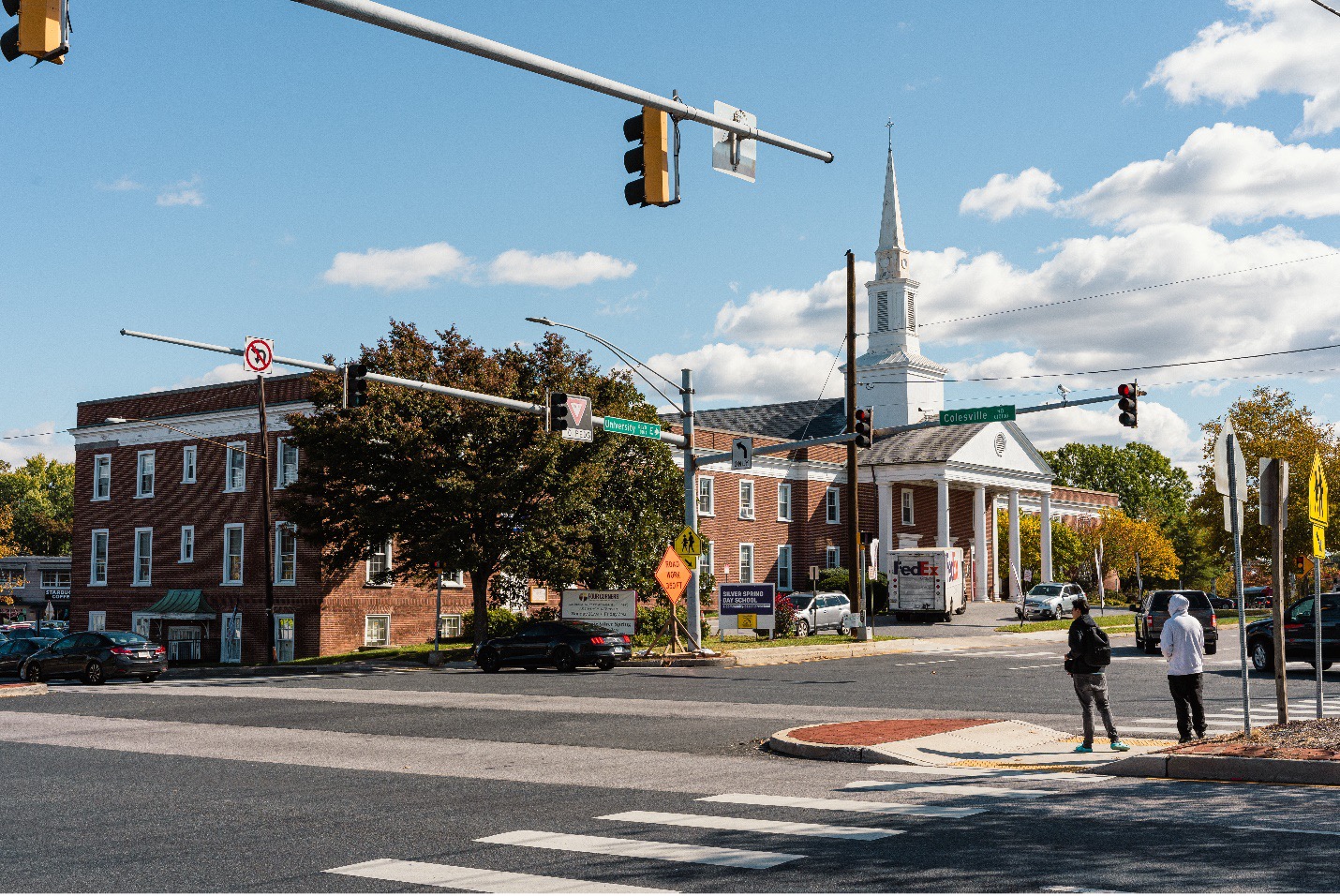As the newly appointed planning director, my new year is defined by two key ideas: opportunity and optimism.
I am humbled by the opportunity to lead a nearly 100-year-old institution as it plans for our county’s future. Building on the work of my predecessors and the ideas codified by the Planning Board and the County Council in Thrive Montgomery 2050, Montgomery Planning will remain focused on developing plans that advance equity, economic growth, and environmental sustainability.

The Montgomery Planning Board appointed Jason Sartori director of Montgomery Planning in October 2023.
We will also seek opportunities for meaningful innovation. From policies and urban design practices that emphasize our county’s commitment to affordable housing to our equity-centered community engagement strategies, we will propose and embrace strategies that welcome new residents and improve the quality of life for those who already call Montgomery County home.
Equally important are our continued opportunities for collaboration. We do not do this work alone. I look forward to continued partnership with Montgomery Parks, our M-NCCPC counterparts in Prince George’s County, the Department of Permitting Services, the Department of Transportation, the County Executive and County Council, the State Highway Administration, the Maryland Department of Planning, developers, and residents to ensure our plans and processes are effective, are efficient, and positively impact our community.

Montgomery Planning won a 2023 Maryland Department of Planning Sustainable Growth Award for Thrive Montgomery 2050. Maryland Planning Secretary Rebecca Flora presented the award to Planning Board Chair Artie Harris in December 2023.
Montgomery Planning won a 2023 Maryland Department of Planning Sustainable Growth Award for Thrive Montgomery 2050. Maryland Planning Secretary Rebecca Flora presented the award to Planning Board Chair Artie Harris in December 2023.
I am also optimistic. Last year we made considerable progress in our planning efforts, which included approval of:
- The Pedestrian Master Plan, which provides a comprehensive vision for creating safer, more comfortable experiences for pedestrians.
- The Fairland and Briggs Chaney Master Plan, which emphasizes community gateways and activity centers as compact, high-density, mixed-use centers focused on frequent transit service, safe pedestrian movement, greater tree canopy and more.
- An updated Rustic Roads Functional Master Plan that includes new and exceptional rustic roads.
- The preservation of the Edward U. Taylor Elementary School, an elementary school for Black students in Boyds during segregation and the only segregated Black elementary school to continue as a school after segregation ended.
I believe we can continue this momentum into 2024 through a robust work program that includes master plans, eight projects and studies, and much more.
A handful of the 2024 work program master plans are already underway and will reach major milestones for communities in Takoma Park, Clarksburg, Gaithersburg/Rockville, and parts of Wheaton and Silver Spring.

The University Boulevard Corridor Plan focuses on a three-mile stretch of University Boulevard between Wheaton and the Beltway to explore improvements in traffic safety, regional connectivity, environmental sustainability, and economic development.
Additionally, we’ll use our interdisciplinary expertise to produce studies and guidelines about shared streets, urban design in Friendship Heights, placemaking efforts, safer parking lots, and more. We’ll begin examining the Randolph Road Corridor and reexamining the Germantown Employment Corridor while making impactful updates to the Growth and Infrastructure Policy and the Public Benefits Point System.
Finally, 2024 will include work on housing policy, setting localized targets to meet housing production goals, mandatory referrals, and implementing recommended changes to streamline the county’s development review process.
I am deeply optimistic about the opportunities ahead, not least because I have served the Planning Department for nearly eight years and lived in the county for two decades. During this time, I have seen our county grow, change, and flourish in amazing ways—in large part because of the data- and community-informed plans spearheaded by my colleagues. I am confident that we will continue this tradition of excellence in service to our county in 2024 and for decades to come.
Below is Montgomery Planning’s current work program for 2024:
- Master Plans
- Projects and Studies
- Shared Streets Guidelines
- Bikeway Branding Project (Phase 2)
- Friendship Heights Urban Design Study
- Coordinated Data Management Study
- Germantown Employment Corridor Check In
- Randolph Road Corridor Study
- Incentive Zoning Update
- Placemaking Activities
- Policy
- Innovative Housing Toolkit
- Attainable Housing Strategies
- Growth and Infrastructure Policy Update
- Thrive Montgomery 2050 Implementation Metrics
- Ongoing review of proposed legislation and zoning text amendments
- Development Activity
- Mandatory Referrals
- Implementing the 22 Development Review Process Workgroup recommendations
- Ongoing review of development applications, historic area work permits, and historic tax credit applications.
- Part of the FY25 Budget request
- Bethesda Downtown Minor Master Plan Amendment
- Georgia Avenue Corridor Plan
- Friendship Heights Sector Plan
- Mapping Segregation Phase 2
- Burial Sites Context Study
- Regional Travel Demand Model Update and Validation
- Climate Assessment Quantitative Tool Update
- Parking Lot Design Study
 About the author
About the authorJason Sartori has been the director of Montgomery Planning since November 2023. He joined Montgomery Planning in 2016 and led the Countywide Planning and Policy Division starting in 2019 before being appointed director by the Montgomery Planning Board. Jason previously served as the Associate Director of the National Center for Smart Growth at the University of Maryland.